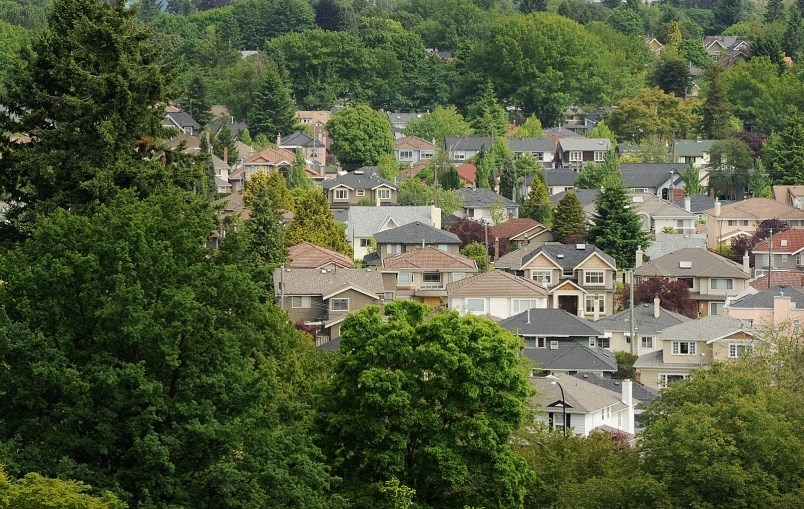The Metro Â鶹´«Ã½Ó³»housing market may look to many like it is heading for a major correction, but two separate brokerage forecasts, both published December 11, assert that this is not the case.
The predicted that the median aggregate price of a home in Greater Â鶹´«Ã½Ó³»would remain fairly level next year, rising a modest 0.6 per cent in 2019 compared with 2018, to $1,291,144.
The national real estate brokerage reported, “While British Columbia’s economy is expected to perform well in the new year, federal and provincial government intervention, low affordability and rising interest rates will continue to weigh on home prices.”
Randy Ryalls, broker and manager of Royal LePage Sterling Realty, elaborated on this point. “The [mortgage] stress test, coupled with provincial tax policies, will continue to affect the real estate market in 2019. The possibility of rising interest rates will also keep some potential buyers on the sidelines as they wait to see how higher rates impact the market. For potential buyers whose purchasing ability is not limited through mortgage regulation or financing, the buying opportunities in Â鶹´«Ã½Ó³»are excellent.”
Ryalls added that the region’s “healthy economy, excellent lifestyle and beautiful natural surroundings will continue to support the real estate market in the long-term.”
Slight price declines, no improvement in affordability
The was a little less bullish, predicting that Metro Vancouver’s average home sale price would see a drop of three per cent in 2019 compared with this year, due to the “low absorption rate.” This, said the brokerage, will follow a slight increase in the average home sale price across 2018 of two per cent, compared with 2017, to $1,049,362. A subsequent three per cent decline in 2019 would take that average price down to $1,017,881, which is slightly lower than 2017’s average price but still well above 2016 prices.
RE/MAX also looked at Kelowna’s real estate market, and predicted that, following a six per cent annual increase in average prices in 2018, home values would shed half those gains in 2019. The brokerage predicted a drop of three per cent next year to take the average price just under the $700K mark, but still more than $20K above 2017’s average.
Any such average price drops are unlikely to make homes more affordable, with interest rates rising and the stress test reducing purchasing power. “The drop in sales in key markets across British Columbia can be partially attributed to Canadians' increasing difficulty in getting an affordable mortgage in the region,” said Elton Ash, regional executive vice-president, RE/MAX Western Canada. “The situation created by the introduction of the mortgage stress test this year, as well as continually increasing interest rates, means more Canadians will be priced out of the market.”
National picture hints at modest rises
RE/MAX said that, nationwide, it expected to see a “modest increase” in the average home sale price next year of 1.7 per cent compared with 2018. However, it added that some “outlier” cities have seen significant price gains in 2018 – including Chilliwack, B.C., up 13 per cent this year – and may continue to buck the national trend.
Its report said, “It is anticipated that the market will continue to stabilize, as Canadians will start to feel the pinch of higher interest rates as they move forward with their home-buying plans in 2019… A survey of RE/MAX brokers and agents found 83 per cent predict rising interest rates will make it more difficult for Canadians to purchase a home next year.”
Royal LePage offered a similar national forecast for 2019, predicting annual gains in the median price of a Canadian home of 1.2 per cent, to $638,257.
The two reports echo the published by CPA’s chief economist Francis Fong, who asserted that high Canadian home prices are economically supported and likely to be the new normal.



